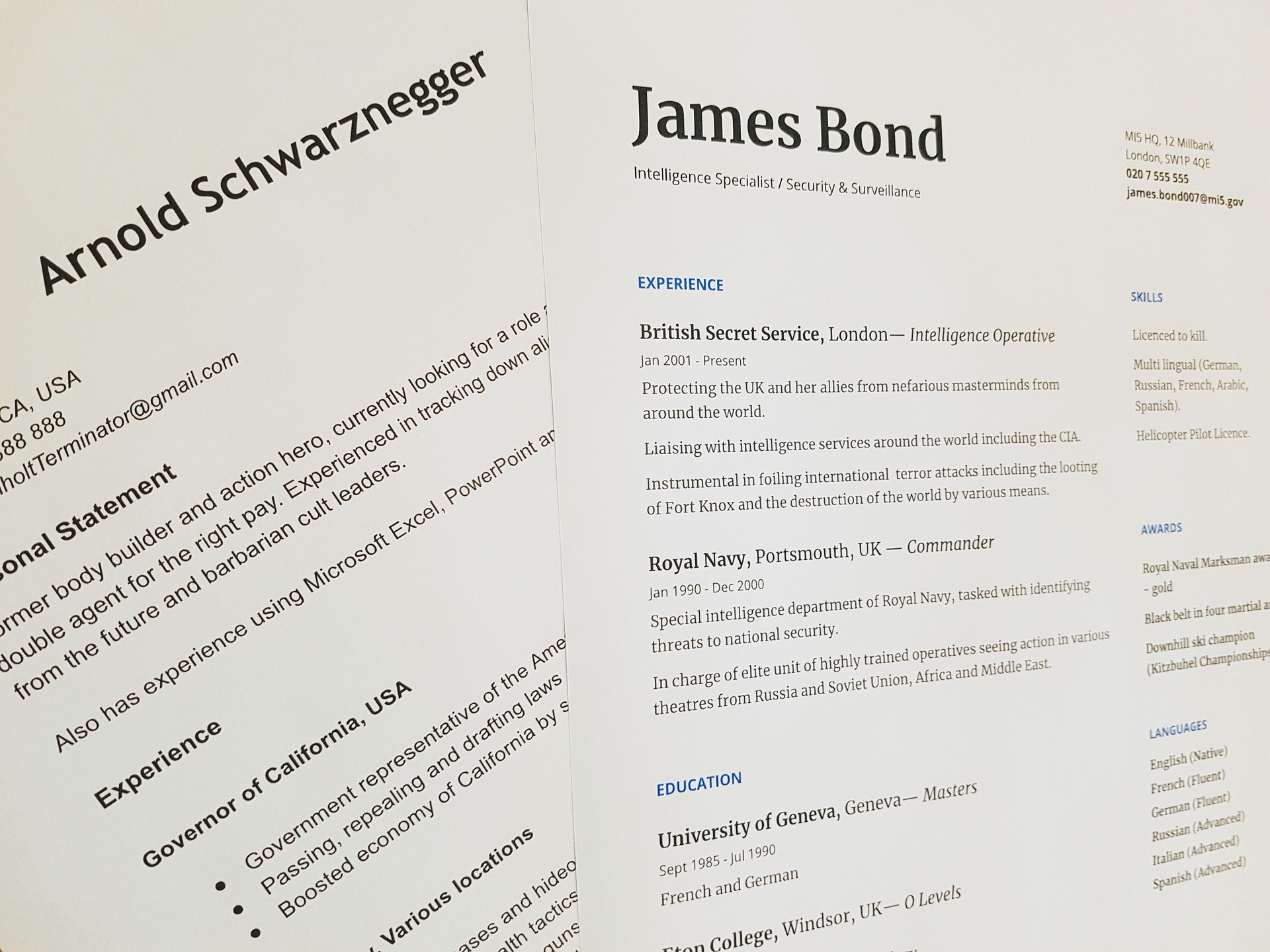It is a new day and it is time to rethink two of your most important career planning documents—the resume and cover letter. Everyday recruiters and headhunters are inundated with resumes and applications from people looking for new jobs. Some resumes and cover letters are mediocre at best, but one of the biggest mistakes you can make is not bothering to create them. However, I find that many people who create them, often get it wrong. I want to help you get it right! The first point, I’d like to make is do not think of these career documents as separate things; they go hand-in-hand.
If there is an order by which you’d want to begin drafting these documents, I’d say begin with the resume. Then create your cover letter. In my opinion, the application is merely a formality and is rarely analyzed in as much detail as the resume and cover letter. Having a strong resume, will pique the recruiter or hiring manager’s interest and encourage them to read more. The cover letter on the other hand should be used to tell a story. It solidifies the impact you want to make for the company. Although it has retained the word “cover”, the cover letter is not the document hiring managers will look at first. They will look at your resume. You must pique their interest here in under 20 seconds. Let’s start at the top; here’s are a few ways:
Objective
This section lays the foundation to discuss the value you will bring to the organization. It shows what you are going after, the strongest technical skill, your strongest professional talent, and the impact you hope to make in the role. When crafting a good objective statement, tailor it to the position and the company. Try never to talk about what you want to become (i.e. the next C.E.O.) but focus on the impact that you want to make in the role. In management, your focus is on building a strong team, reducing or managing costs, and increasing revenues through new programs, product or services. When you are developing your cover letter, this objective statement will serve as your thesis. Think about it deeply. Every single point after the objective should reinforce that ideal.
Skills
This section contains a list of relevant skills-based keywords the position is requiring. You will need to think of your top operational skills and people skills. In 2021, managers will want to begin adding digital skills above and beyond basic computer use, emphasize collaboration, team building and operations analysis capabilities. I always ask the clients I work with, “has this point earned its way on to the page?”
Work History
Use this section wisely. Many people end up rehashing a list of job duties. Job duties are listed in the “job duties” section of your application. Why be redundant? I suggest you focus on what you learned, the skills that you gained and any impacts you made—not what you did. If there are tangible and measurable achievements, quantify when possible. You can use the cover letter to go into a few details on your strongest bullet points from this section. You can tell a story on how those skills were gained, how you reached conclusions, and pivot back to how that lesson will positively impact the new role.
Volunteer/Community Work
Often, I hear people say to never include irrelevant volunteer work on your resume. I do not necessarily believe that to be true. If anything, it shows that you are a well-rounded individual. If you are in an accounting position by day and on an operations board committee by evening. There are many transferable skills one can gain with these experiences. An inexperienced hiring manager or recruiter will only hire based on past job titles. Past job titles are not predicators of future success, behaviors are. Hiring mangers should be adept to discovering those capabilities during the interview process. Your job is to provide that clarity. There are a few things anyone should be able to demonstrate: your ability and willingness to learn, your ability to gather, analyze and implement new information, and lastly your ability to collaborate and be a positive influence on those around you. Do not think of volunteer work as irrelevant because it was unpaid. There have been times, that I worked harder on the Boards I was on than in the day job. Sometimes, you will find professional fulfilment through charity than through day jobs that are mundane with no growth prospects. You can use that to you advantage to carve out new opportunities for yourself. The mentorship I received as a volunteer board member, positioned me to do work two levels above my pay grade in the day job!
These are just a few ways to begin rethinking your career planning. These are vital documents that require a new approach. Do not spend time attempting to make it look pretty with pictures and elegant designs; those are distractions. Focus on the content. Focus on telling a strong and compelling story. Make them not regret calling you in for an interview!










